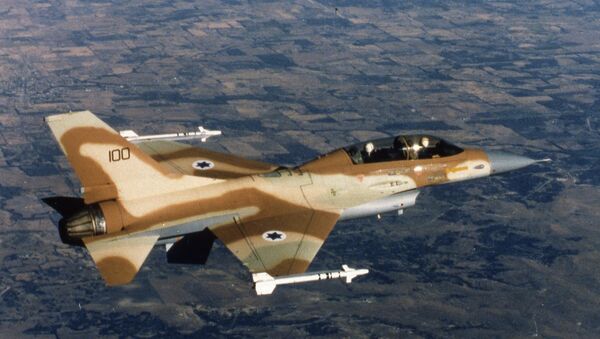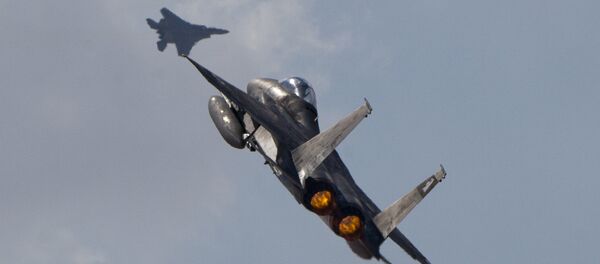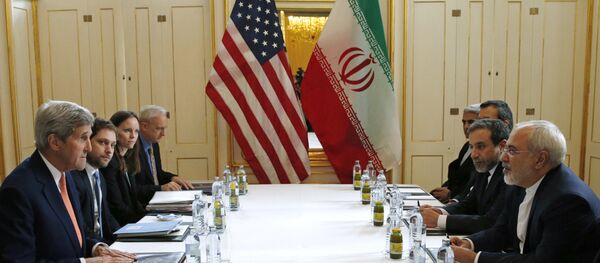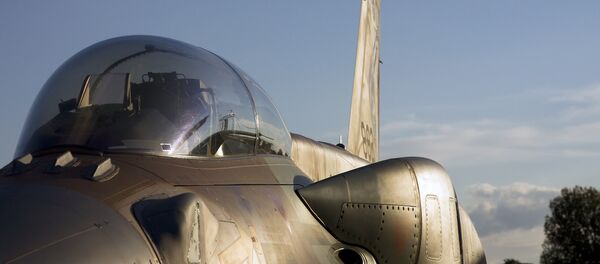Israel's recognition of a 2007 strike against a supposed Syrian nuclear reactor appears to send a warning signal to Tehran as a new anti-Iranian coalition is emerging in the Middles East.
"The courageous decision of the Israeli government almost 11 years ago to destroy the nuclear reactor in Syria and the successful operation following it sends a clear message: Israel will never allow nuclear weapons to countries like Iran who threaten its existence," Minister of Intelligence Israel Katz, who also serves as the minister of transportation and a member of the Security Cabinet of Israel, tweeted on March 21.
The courageous decision of the Israeli government almost 11 years ago to destroy the nuclear reactor in Syria and the successful operation following it sends a clear message:
— ישראל כץ Israel Katz (@Israel_katz) 21 марта 2018 г.
Israel will never allow nuclear weapons to countries like Iran who threaten its existence.
Operation Outside the Box
On September 6, 2007, four F-15 and four F-16 Israeli fighter aircraft launched a top secret attack against the Al-Kibar facility in the Deir ez-Zor region, about 300 miles northeast of Damascus. The mission, codenamed Operation Outside the Box, envisaged the destruction of a supposed nuclear reactor that had been developed for many years and was reportedly due to enter into service in 2007.
According to the general, the only question was how long it would take for Syria to start loading the reactor with nuclear fuel. The answer was — from six to seven months, Yadlin elaborated, adding that Israel's secret operation sought to goals: to destroy the Syrian reactor and to avoid a war. Both aims were achieved, the ex-Israeli military intelligence chief said.
A month after the 2007 attack, The New York Times reported about Tel Aviv's strike, citing Israeli and American intelligence analysts. The media outlet specified that "the attack on the reactor project ha[d] echoes of an Israeli raid more than a quarter century ago, in 1981, when Israel destroyed the Osirak nuclear reactor in Iraq shortly before it was to have begun operating."
However, speaking to Sputnik, Dr. Taleb Ibrahim, a Syrian political analyst and deputy director of the Damascus Centre for Strategic Studies, threw Israel's secret mission into question: "I think that Israel, the Israelis are lying because what they bombed in 2007 was not a nuclear facility because it is very well known that Syria doesn't have such kinds of facilities and actually there isn't any nuclear program in Syria."
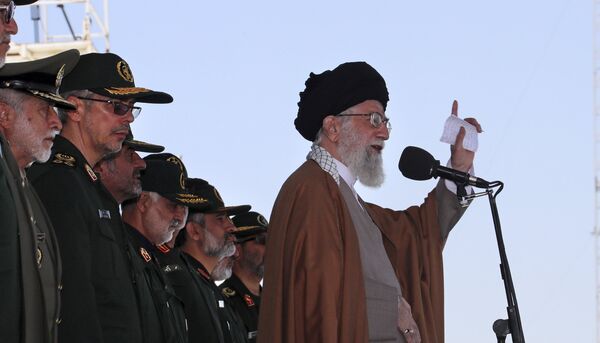
Iran-Israeli Confrontation Gaining Pace Since 1979
Nevertheless, the question arises as to why the Israeli IDF Military Censor has decided to declassify this data now. It seems that Katz's reference to Iran is an answer to this question.
The IRI nuclear program exacerbated the Iranian-Israeli confrontation, which risked translating into a war in 2010-11. However, the Joint Comprehensive Plan of Action, also known as the Iran nuclear deal, agreed in July 2015 by Iran, the five permanent members of the United Nations Security Council plus Germany and the European Union helped reduce the tension.
However, Iran's intensified military activities in Syria amid the ongoing civil war in the country triggered Tel Aviv's concerns over Tehran's growing influence and alleged military buildup in the country.
In late February, Fox News reported about the construction of what appeared to be an Iranian missile base near Damascus which was allegedly controlled by the Quds special forces unit of Iran's Revolutionary Guards (IRG).
In response to the report, a source from Iran's Defense Ministry familiar with the case denounced the assumption as groundless in an interview with Sputnik. The source highlighted that Iran does not have military bases outside its territory, while "its presence in Syria is limited to providing military advice."
"Establishing a military base outside Iran's borders requires an official and public approval of the government of this or that country, in particular Syria," Sputnik's interlocutor specified.
Under the pretext of thwarting Iran's influence in Syria, Israel has conducted more than 100 air strikes on facilities in Syria which were believed to be connected with Iran's military activities, as well as with operations of the Hezbollah militant group, designated as a terrorist organization by Tel-Aviv.
On February 10 the Israeli Air Force downed an alleged Iranian drone launched from Syria, after it crossed into the Israel-held Golan Heights. Then the IAF attacked what it said were Iranian targets in Syria, which prompted a retaliatory strike from the Syrian air defense forces. As a result, an Israeli F-16 fighter jet was shot down.
Tensions over the confrontation between Tehran and Tel Aviv continue to escalate.
From March 4 to 15 the US and Israel held the joint military drills Juniper Cobra in the region. Furthermore, according to the Kuwaiti newspaper Al-Jarida, two IAF F-35 stealth fighters conducted a reconnaissance operation over Iran, Iraq and Syria earlier this month. The media outlet claimed that the fighters had managed to "deceive" Russia-made radars.
However, a source in the Russian Defense Ministry told Sputnik that the report bore no resemblance to reality, branding the story as "total rubbish."
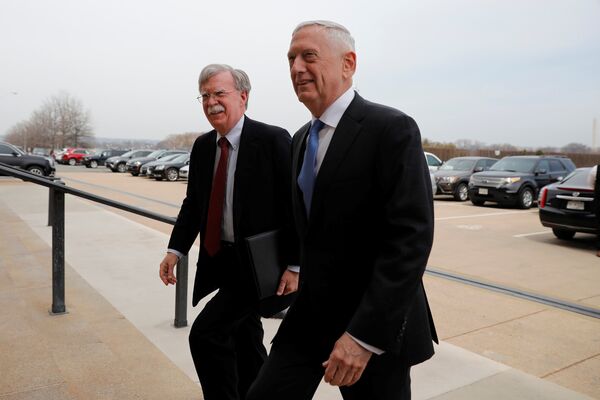
Washington and Its Gulf Allies Raise Alarm Over Iran's Rise
For its part, Washington is continuing to toughen its rhetoric towards Tehran and the JCPOA. Referring to the appointment of Trump's new national security adviser, John Bolton, known for his criticism toward Tehran, observers presume that the US president forms nothing short of a military anti-Iranian cabinet.
Likewise, the new US Secretary of State Mike Pompeo dubbed Iran a "thuggish police state" and a "despotic theocracy." Echoing Trump, Pompeo has repeatedly lambasted the Iran nuclear accord, claiming in November 2016 that he "look[ed] forward to rolling back this disastrous deal with the world's largest state sponsor of terrorism."
At the same time, the Saudi Crown Prince Mohammad bin Salman appears to be yet another Israeli ally in the confrontation against Iran. The crown prince dropped the hint about a potential war with Iran in the next 10-15 years and noted in one of his interviews that "if Iran developed a nuclear bomb, [Riyadh] will follow suit as soon as possible."
The emergence of an anti-Iranian coalition and the recognition of the 2007 strike against the supposed Syrian nuclear reactor indicate that neither Tel Aviv, nor Washington, or Saudi Arabia and its allies are willing to allow Iran to further strengthen its positions in the region.
The views and opinions expressed in this article are solely those of the author and do not necessarily reflect those of Sputnik.

